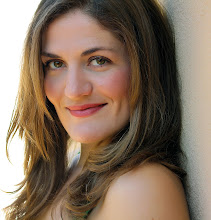Last night, I went to hear Susannah Heschel speak at BJ. She is a professor at Dartmouth and the daughter of the late Abraham Joshua Heschel, a pioneer of Jewish thought. One of his famous phrases was to "pray with your feet" - meaning to march in Selma with MLK.
The talk by SH was on the topic of forgiveness, since Yom Kippur is rapidly approaching. She began by saying that she feels allergic to the word forgiveness as our society understands it - all the swallowing of anger, the false "I forgive you"s that are thrown around. I tend to agree with this - I can forgive someone if they are very sincere about making amends and committing to change for the future. Repeatedly accepting someone's apology while they continue to wrong you isn't forgiveness - it's stupidity and self-abuse.
The next point she made was about forgiveness as it is misunderstood - when it is really understanding (as in the case of an abusive parent who turned out himself to have been abused, so the child understands and "forgives" them for doing it.) I agreed that in a way it's not possible to forgive because the circumstances are complicated by extenuating circumstance. But what I think is that at a certain point in our adult lives, we have to examine the experiences we had and ask ourselves how long we will make that our excuse for the way we are now. We can spend the rest of our lives bemoaning the hand we were dealt, or we can decide to make a new start. For some, this is a change of attitude. For others, this means psychotherapy. But for all, it is taking adult responsibility.
Finally, Prof. Heschel made the case for "being a busybody," by which she meant interfering and getting involved when you think you can help people resolve their disputes. In our culture, we are often told to "mind our own beeswax." But the truth is that from the highest levels, we also value poking our nose in the business of others, and in fact we feel guilty when we wait too long to do this - clearly, we should have gotten involved in WWII earlier to save more Jewish lives, and there have been countless genocides and human rights situations that have warranted intervention since then.
So, my question is this: on what level are we comfortable with intervention? When I'm on the subway or the sidewalk, I often cringe at the way parents scream at their children, berating them for perceived flaws or missteps. Should I say something?
The other day, I was standing in line at a box office and there were two women behind me. One got out of line for a moment to read the fine print on a poster about the play. When she stepped back, the other woman wouldn't let her back to her place. She said the woman hadn't asked her to hold the place. Of course the other woman countered with "I didn't think I had to - I thought it was implied." Now, I'm not really judging one or the other, although I figure it's just one person, let her back in line, right? But that's not really the point. The point is, they got into a screaming match, complete with expletives, and I finally turned around and just said, "I can't believe you're having this conversation." Why create so much strife over such a little thing? I didn't think I could stand there and mind my own business as if this was acceptable - because sometimes when we don't have anyone to check our behavior, we get out of control. 9th graders know this from reading Lord of the Flies.
It's a fine line, knowing when to intervene, when to mind our own business. Please comment!





